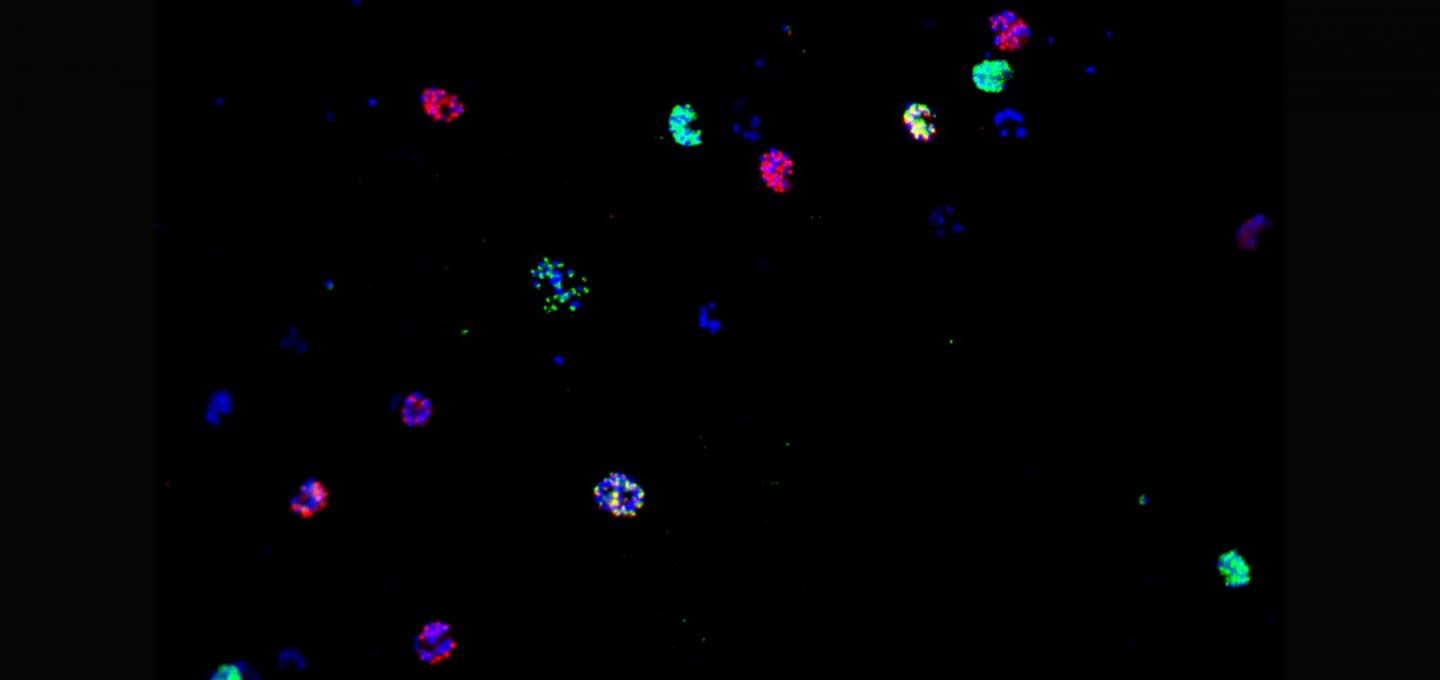P. falciparum parasites can develop drug resistance by epigenetic changes in clag3 gene expression

Credit: Mira et al, 2019
Resistance to antimalarial drugs is thought to result mainly from changes in the parasite’s genome. However, P. falciparum can also develop resistance to some antimalarial compounds by epigenetic changes, according to a new study led by ISGlobal, an institution supported by “la Caixa”, and the Institute of Tropical Medicine (ITM), Antwerp. This is of concern because resistance acquired at the epigenetic level can arise quickly, even during the course of a single infection.
P. falciparum, the most deadly malaria parasite, has developed resistance to all antimalarial drugs, including artemisinin combination therapies (ACTs), which are the current frontline treatment. Most of the known mechanisms by which P. falciparum parasites develop resistance to antimalarial drugs are due to changes in the genome. However, a team led by Alfred Cortés (ISGlobal) and Anna Rosanas-Urgell (ITM) explored the role of epigenetics (i.e. changes in gene expression that do not involve alterations in DNA sequence) in antimalarial drug resistance. Particularly, they looked at two parasite genes – clag3.1 and clag3.2 – whose expression is regulated by epigenetic mechanisms and that determine the activity of a channel called Plasmodial Surface Anion Channel (PSAC), which regulates the entry of nutrients and other molecules into red blood cells infected by the parasite. Previously, Cortés and his team had found that switches in the expression of clag3 led to changes in PSAC permeability and resistance to compounds toxic for the parasite.
In this study, the researchers investigated whether other antimalarial drugs require clag3 to reach their intracellular target and could consequently be prone to parasite resistance by epigenetic mechanisms. They found that certain compounds such as bis-thiazolium salts T3 and T16 require the product of clag3 genes to enter infected erythrocytes. Furthermore, P. falciparum populations could develop resistance to these compounds through the selection of parasites with reduced expression of both genes. In contrast, other compounds predicted to use transport pathways to enter infected erythrocytes, such as doxycycline, azithromycin or lumefantrine, did not require expression of clag3 genes for their anti-malarial activity.
“These results show that P. falciparum can develop resistance to certain antimalarial compounds by epigenetic changes in the expression of clag3 genes,” explains Sofia Mira, co-first author of the study together with Anastasia Pickford and Nuria Rovira. “These results are of relevance to drug development efforts, since resistance by epigenetic mechanisms can arise quickly, even during the course of a single infection,” adds Cortés. “It is also easily reversible, providing the parasite with an extraordinary level of plasticity.”
###
Media Contact
Adelaida Sarukhan
[email protected]
Original Source
https:/
Related Journal Article
http://dx.




